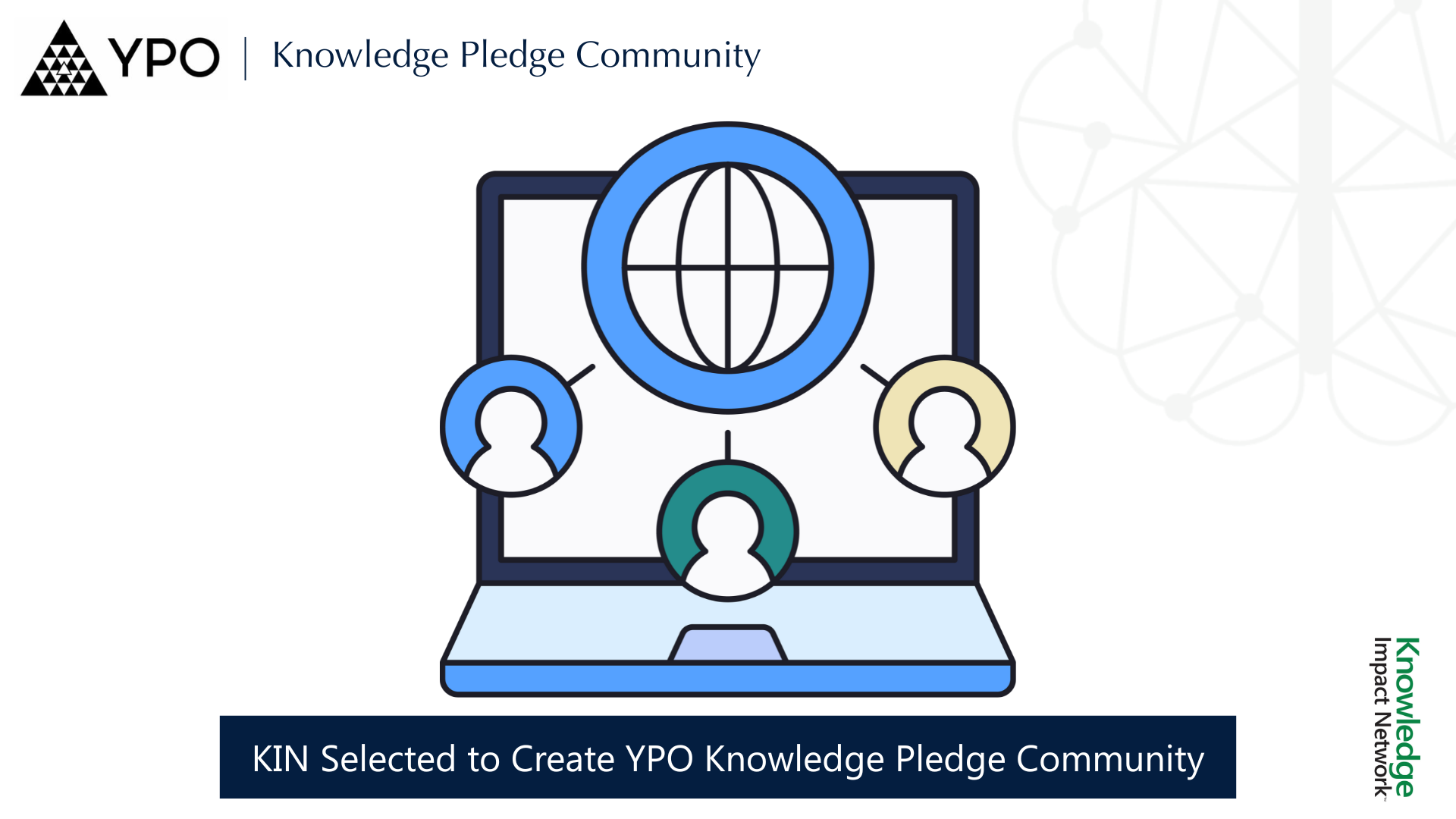5/20/24
KIN Plans 12-Month Facilitated Forum Circle
.jpg)
The threat to human health posed by nanoplastics was the focus of a Knowledge Impact Network discussion on May 17, gathering so many ideas from 30-plus participants that the organization has decided to form an ongoing forum-like circle. One idea the group focused on during the “KINpoint” session was increasing awareness that nanoplastics should be treated as a medical problem as much as an environmental issue.
KIN, the nonprofit started in 2020 to gather experts to share their knowledge more widely to help solve social challenges, is inviting participants to a KIN planning session on June 12 to establishpriorities and formulate a roadmap for the creation of a KIN Nanoplastics Circle. The Circle would have up to ten members and meet periodically for a year to crystalize its best advice for legislative entities, NGOs, and industry best suited to activate the group’s findings.
.png)
"When I talk about this, most respond by saying 'we all know about ocean plastic, but I had no idea plastic particles are in my own body,’” session lead presenter Dr. Sarah McCue, PhD noted. “‘How do I test for it, and how do we get rid of it in humans?' I think KIN can be pivotal in building awareness immediately among the public, business, environmental organizations, and health associations," she said.
Dr. McCue is a KIN Ambassador and one of 40 pro bono global advisors from the United Nations and international NGO system focused on economic empowerment and education at the base of the pyramid.

KIN Co-founder Alain Chetrit said Sarah “led an inspiring yet terrifying meeting that brought anarray of research and evidence to the forefront,” adding, “This is among the most important problems humanity faces for its health and the environment.”
Microplastics and nanoplastics researchers have reportedly found the particles in the seafood we eat, in our lungs and blood,in human placenta, and even in our brains. Particles have been found in the Arctic’s pristine snow.
The KIN group identified awareness of the problem and potential solutions as the biggest issues a KIN Nanoplastics Circle should focus on. In addition to advancing solutions and recommendations, KIN Impact Circle participants would benefit personally and professionally by engaging in this fulfilling work.
The group participants included scientists, sustainability experts, media professionals, and educators. They explored ways to reduce the use of plastics in myriad ways, ranging from creating newplastic-free products to incorporating pollution taxes and sustainability credits. The medical industry was singled out as a particular problem, particularly during COVID, having produced billions of tons of PPEmaterials made with plastic, from masks to gowns. One discussion participant, aerospace scientist TerryTrevino, said research has shown that millions of mask users ingested nanoparticles emanating from their PPE masks. He said many particles are as small as 40 nanometers and impossible or impractical to filter out. A nanometer is one-billionth of a meter. He told the group that one of the leading threats of nanoplastics is their impact on plankton and the food chains in the oceans. “We can lose 1.5 billion people if we lose the oceans,” he said.
Business, legal, and political strategist Yak Lubowsky said that "the most daunting and discouraging situations challenge us to mobilize response cohorts striking exactly the right balance between catalyzing and paralyzing. In this process, channeling fear must be weighed carefully as fear triggers the fight-or-flight response in human beings. Confronting the immensity of the nanoplastics challenge, flight will lead to inner despair rather than to the social mobilization needed to fight the problem ... once an order of battle can even be determined.”
The June 12th follow-up session focusing on establishing aroadmap for the KIN Nanoplastics Circle will be championed by Dr. McCue. The registration link is here, and participation costs and sponsorships here.
KIN’s vision is to create forum circles on challenges thatneed fresh and innovative collaborative thinking to help develop solutions. KINCircles are the results of what KIN learned from its initial years of testingmethods to help solve social challenges.



%402x.svg)
%402x.svg)
.png)
.png)
.png)

.png)
%402x.svg)
%402x.svg)